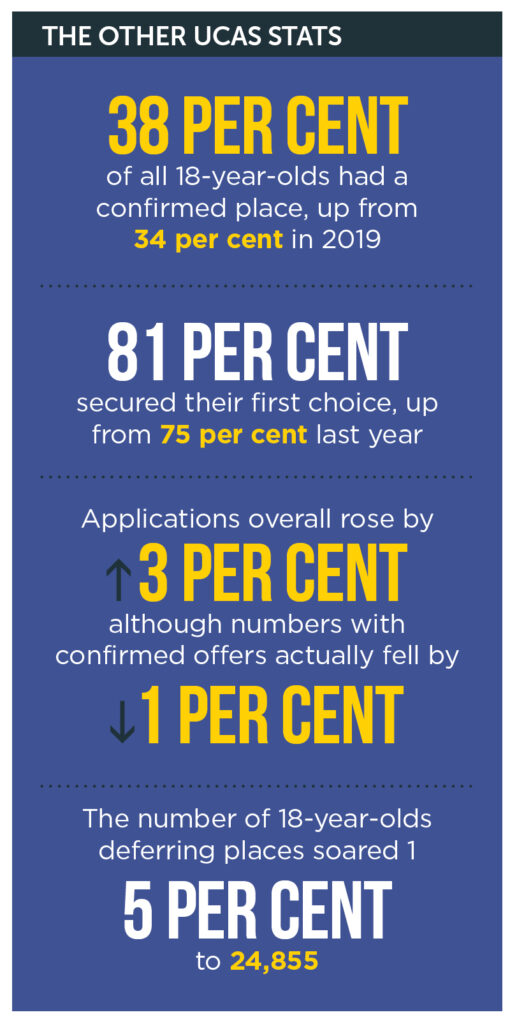The number of places offered by top universities has soared by almost a third in two years, after A-level results hit a record high.
The increase at the most competitive universities comes after two years of teacher-assessed grades sparked grade inflation.
Data from the Universities and Colleges Admissions Service (UCAS) shows 103,010 young people secured places at “higher tariff” universities – which have stricter academic entrance criteria – at the end of the 2021 admissions cycle.
This is yet more evidence that the value of HE has never been so treasured
It marks an 11 per cent increase on the 92,650 accepted in 2020, and a 28 per cent rise on the 80,380 accepted before the pandemic in 2019.
The increase over the past year significantly exceeds the 3 per cent rise in the size of the 18-year-old population.
UCAS said its new figures revealed the most detailed insight yet into the impact of awarding grades based on teachers’ assessments after Covid forced exam cancellations.
It noted the number of applicants who had achieved three A* or equivalent grades at A-level, at 19,595, had almost doubled on 2020 levels and almost quadrupled on 2019 levels.
University ‘flexibility’ praised
Clare Marchant, the service’s chief executive, said thousands more students were benefiting as their “hard work throughout the pandemic has been rightly recognised” by teacher assessments.
The “flexibility shown by universities and colleges” had also boosted numbers, particularly at the most competitive institutions, she added.
Many other high-achieving students were also choosing to reapply in the current admissions cycle.
Marchant has previously highlighted the “squeeze on available places”, particularly for competitive courses, amid increased demand and continued growth in the number of 18-year-olds.
Some Oxbridge colleges slashed offer numbers by as much as 15 per cent to avoid an admissions bulge this year.
Nick Hillman, director of the Higher Education Policy Institute, said it was “yet more evidence that the huge value of higher education has never been so treasured as it has been during the pandemic”.
But he said universities needed to be careful that they did not expand so fast that their student experience suffered.
Story by Tom Belger

















Your thoughts